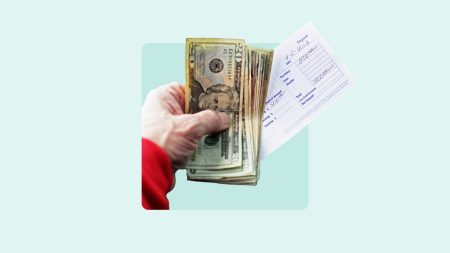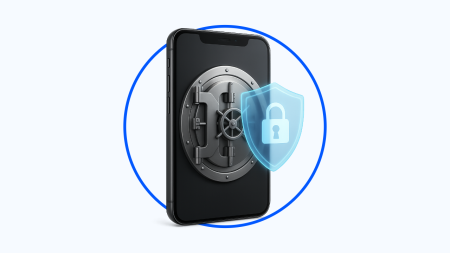Key takeaways
- Credit card forbearance is typically offered by your credit card issuer and can help you manage your credit card payments if you’re facing financial hardship.
- If your credit card issuer doesn’t offer credit card forbearance or denies your request for it, you may have to consider other debt management options like balance transfer cards.
- Card forbearance won’t hurt your credit at the outset, but accumulating a large balance from resulting interest could lower your credit score.
If cost of living increases and unexpected financial hardships have left you wondering how you’re going to pay your credit card bill each month, you’re not alone. Bankrate’s 2025 Credit Card Debt Report shows that nearly half (46 percent) of cardholders are now carrying a balance from month to month — a slight decline from 48 percent in November 2024, but still high compared to 39 percent in December 2021.
One unexpected place to seek help is with your credit card issuer. Some issuers offer credit card hardship assistance — also known as credit card forbearance — to help you continue paying your credit card bill.
However, credit card forbearance can have serious effects on your account and credit score, so you’ll have to decide whether the helping hand is worth it in your unique situation. Here’s a deeper look at what credit card forbearance is and the advantages and disadvantages of using it.
What is credit card forbearance?
Credit card forbearance is a method of debt management offered by credit card issuers to aid cardholders in times of financial strain, like when you lose a job. Credit card forbearance doesn’t forgive or waive any of your debt, only the fees and interest associated with your debt — and only temporarily. For example, if your credit card issuer defers your payment for a period of time, you’ll eventually have to resume payments once the forbearance period is over.
The type of forbearance you may qualify for depends on your personal finances and the card issuer’s policy. Credit card forbearance can come in many forms, including:
- Credit line extensions
- Paused or lowered minimum payments (for a set period of time)
- Reduced interest rates
- Waived fees (like late payment fees)
It’s generally up to you to ask the issuer for credit card forbearance assistance, and you’ll usually have to explain your hardship when you do so. Plus, you’ll have to provide evidence that you can repay the issuer once the temporary assistance ends — typically within 12 months. That also means the issuer can deny your forbearance request if your payment history or credit score show you won’t be able to reliably repay them.
Pros of credit card forbearance
Credit card forbearance can be a good starting point to tackling your debt. By entering into a forbearance period, you could get the following advantages:
- Your payments will become more manageable. Entering into a credit card forbearance period can help you get more control over your payments, especially because your issuer will likely have rules you need to follow to stay on track.
- You could save money on interest or fees. If your issuer temporarily lowers your interest rate or waives some of your fees, you’ll save money during the forbearance period as opposed to just deferring your payments.
- You can pay down your balance faster. You’ll be able to put the money you save back into paying down your balance or another pressing expense.
Cons of credit card forbearance
Forbearance may seem like an ideal option when facing mounting bills and stress during uncertain financial times, but it’s a bit like putting a Band-Aid on a bullet hole. Here are the cons you should be aware of:
- You won’t get any sort of debt forgiveness. Credit card forbearance may help for a short time, but the debt will still be there when you take the Band-Aid off.
- You have no control over what kind of forbearance the issuer will give you. Because the forbearance terms and conditions vary by each card issuer, it’s possible you won’t really save any money or be better off once the period ends. For example, if your issuer reduces your minimum monthly payments rather than pausing them, and you decide to only pay the minimum, you’ll actually be paying more in the end due to added interest.
How credit card forbearance impacts your credit score
As long as you make on-time payments and you continue to follow the terms of the forbearance program established by your credit card issuer, your credit score will not be negatively impacted.
However, if you end up with a big balance through forbearance assistance factors like accrued interest or smaller minimum payments, your credit score will likely go down because your credit utilization will go up. Granted, the effect a higher credit utilization ratio would have on your credit score is likely easier to manage than the damage a credit card delinquency would have on your credit, so forbearance could still be a more appealing option if your account may go into default otherwise.
How is forbearance different from deferment?
The terms “forbearance” and “deferment” are often used synonymously, but there are a few key differences. A true deferment only applies to student loans, rather than credit card balances. Beyond that, the terms also differ in what they potentially promise.
If your credit card issuer allows you to defer payment, the interest during the deferment period will typically still be compounding. Conversely, if your credit card balance is put into forbearance, fees associated with the balance could be temporarily suspended — though this depends on the issuer and in most cases interest will still accrue.
Another important difference between deferment and forbearance is how long payment collection is halted. In the case of credit card deferment, payment collection is typically suspended for a short period of time — usually a month or less — and repayment is expected as soon as the grace period ends.
In the case of forbearance, the time period in which relief assistance methods may last is longer — in some cases several months or up to a year.
Is a balance transfer right for you?
If you want to not just defer interest but fully keep it at bay while you pay off your balance, and you have a good-to-excellent credit score, you may be able to obtain a balance transfer card. These cards come with low- or no-interest offers and can allow you to avoid the interest costs that would’ve returned at the end of the forbearance period.
The bottom line
If you’re suddenly having trouble making ends meet, credit card forbearance may be able to make it easier to handle your card payments. However, forbearance is not without risks, especially if you’re not committed to maximizing your forbearance period and paying off your debt as much as you can.
Plus, if your credit card issuer does something like lower your minimum monthly payments without waiving fees or reducing your APR, you can wind up paying more interest over time.
Still, it never hurts to reach out to your credit card issuer to see how they can help you during times of financial hardship.
You can also look into options like opening a zero-interest credit card, creating a debt management plan, seeking credit counseling or consulting credit repair companies.
Why we ask for feedback
Your feedback helps us improve our content and services. It takes less than a minute to
complete.
Your responses are anonymous and will only be used for improving our website.
Help us improve our content
Read the full article here









